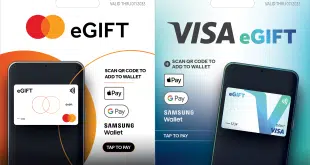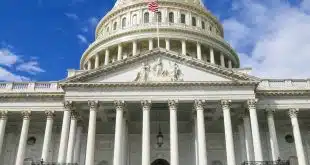n
Opponents of debit card regulation issued results of a shopping survey that they say shows consumers are not benefiting from lower prices despite the fact that merchants are enjoying lower debit card acceptance costs thanks to controversial Durbin Amendment interchange regulations that took effect Oct. 1.
n
n
In fact, the Washington, D.C.-based Electronic Payments Coalition claims average prices at 21 locations of four national retailers where its representatives purchased goods have actually risen by 1.75% since Oct. 1. “Merchants’ empty promises to pass savings on debit card purchases are coming to light,” EPC spokesperson Trish Wexler said in a statement. “More than two months after the Federal Reserve’s rule implementation, customers are actually paying more for the same products, even though retailers are already taking home millions in additional profits. Something is very wrong with this picture.” The EPC’s backers include payment card networks and banks, the latter of which receive interchange on debit and credit card transactions.
n
n
The Washington-based National Retail Federation, a leading Durbin Amendment backer, ridiculed the EPC’s findings, saying it’s too soon to make any definitive claims about Durbin’s effects and that the survey doesn’t reflect other factors that influence prices. “This survey is laughably ludicrous,” NRF vice president of government affairs and public relations J. Craig Shearman said by e-mail. “Any first-year economics student can tell you swipe fees [interchange] aren’t the only factor that goes into setting retail prices.”
n
n
EPC researchers visited 21 locations of four prominent pro-Durbin retailers, Wal-Mart Stores Inc., Walgreen Co., 7-Eleven Inc., and The Home Depot Inc., a total 84 times. The stores were in Boston, the Virginia suburbs of Washington, Little Rock, Ark., Atlanta, South Portland, Maine, and the San Francisco area.
n
n
The shoppers each time bought identical baskets of mainly household goods and groceries ranging in total cost from about $35 to $50. They made their first trip in late September, just before the Durbin price controls took effect, and followed up with purchases on Oct. 15, Nov. 1, and Nov. 15. Of the 21 stores studied, 16 either raised prices or kept them the same after Oct. 1 while only five lowered prices, the EPC said. In total, the goods increased in price by an average of 1.75%.
n
n
So far, no prominent disinterested party has released research assessing the amendment’s effects. Some merchant acquirers, notably Heartland Payment Systems Inc., have been divulging how much in savings they have passed on to their merchant clients since Oct. 1. Acquirers technically pay interchange to issuers, but they pass the cost on to their merchants. The Durbin Amendment presents opportunities for acquirers to increase margins, at least temporarily, by not forwarding to merchants their reduced debit interchange expenses.
n
n
Federal Reserve regulations implementing the Durbin Amendment, a part of 2010’s Dodd-Frank Act, set a cap of 21 cents plus 0.05% of the sale on purchase transactions from debit cards issued by financial institutions with more than $10 billion in assets, with another penny under consideration for fraud control. That’s a cut of more than 40% from the average estimated interchange revenue of 44 cents per transaction issuers received before the amendment took effect. Estimates of the total hit to big debit issuers, which account for about two-thirds of the market, have ranged from $6 billion to $8 billion annually.
n
n
A Thursday EPC press release recycled a statement from NRF senior vice president and general counsel Mallory Duncan from last March in which he said merchants would be ready to pass on lower swipe fees “in the form of discounts and other benefits as soon as reform goes into effect.” But the NRF’s Shearman said the EPC’s claim that, “retailers aren’t offering discounts is pure fiction. We’re in the middle of the holiday season where prices are being slashed and discounted every day, and the savings from swipe fees are helping retailers offer those discounts,” he said.
n
n
Shearman added that some processors haven’t yet passed on the savings to their merchant clients. “Once the full savings is passed along and retailers get good data on the precise amount, merchants will find even more ways to share this with their customers,” he said.
n
n
A spokesperson for U.S. Sen. Richard Durbin, D-Ill., chief sponsor of the Durbin Amendment, did not respond to a Digital Transactions News e-mail seeking comment about the EPC survey.





